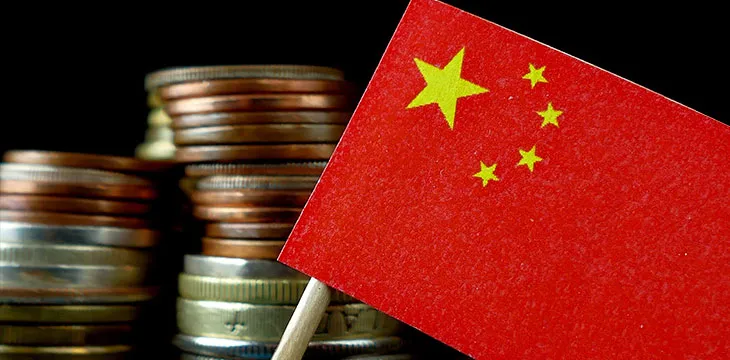|
Getting your Trinity Audio player ready...
|
As China continues to move toward wider regulation of the cryptocurrency industry, it now has its next target in sight. The country’s central bank, the People’s Bank of China (PBoC), is going to start taking a harder look at airdrops, which the bank describes as being nothing more than initial coin offerings (ICO) in disguise.
The PBoC published (in pdf) its 2018 financial stability report last Friday, in which it turned to the same worn-out arguments against ICOs and crypto trading. Once again, it called out the risks of financial fraud associated with cryptocurrencies and the number of pyramid schemes found in the space. Of course, nothing like that ever happens in the fiat financial world.
An airdrop is a type of cryptocurrency distribution made for free to a large group of crypto wallets. It is used to offer rewards for a particular activity or to help promote the crypto project.
The bank asserts that airdrops are an attempt to circumvent regulations created for public token sales. It claims that they offer free assets to investors and that companies use market speculation to inflate their coin’s value to increase their profits.
Despite an attempt to thwart ICOs in the country, the PBoC says that the number of airdrops is climbing. It wants to implement an “early detection” system and is pushing for regulators from around the world to provide a significant increase in oversight.
The financial report also delves into rise of crypto firms deciding to move overseas because of the strict regulations and how they use foreign intermediaries to invest on behalf of Chinese investors. It also warns against what it sees as a prevalence of fraudulent whitepapers and crypto projects that are only disguised as “blockchain innovation,” but which are not at all blockchain companies.
As crypto opponents routinely do – and which has already been proven to be false – the bank also brought up the use of crypto for money laundering and terrorism financing. It would appear that the authors of the report based their conclusions on data that was relevant maybe a year ago.
Bringing the report to a close, the authors bragged about the bank’s actions against the crypto space over the past couple of years. It referred to a PBoC report from 2013, Notice on Precautions Against the Risks of Bitcoin, and its complete ban on ICOs from September of last year.
As much as the bank would like to try to convince the public, crypto is not illegal in China. A recent case in Shenzhen that was sent to arbitration found that crypto is a property and, as such, is legal. Arbitrators in the case asserted, “There is no law or regulation that explicitly prohibits parties from holding bitcoin or private transactions in bitcoin, [only warnings to] the public about the investment risks. The contract in this case stipulates the obligation to return the bitcoin between two natural persons, and does not belong to the [Sept. 2017 ban].”

 07-02-2025
07-02-2025 





